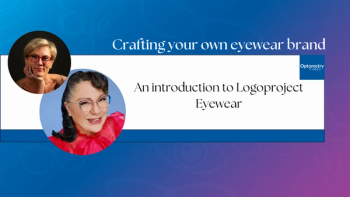
AREDS2 results in
Data from the Age-Related Eye Disease Study 2 (AREDS2), recently published in The Journal of the American Medical Association, [http://jama.jamanetwork.com/article.aspx?articleID=1684847] were released last month at the Association of Researchers in Vision and Ophthalmology (ARVO) meeting in Seattle.
Study results showed that adding omega-3 fatty acids DHA and EPA or lutein and zeaxanthin to the original AREDS formula (see sidebar) did not reduce the risk of advanced age-related macular degeneration (AMD). However, adding lutein and zeaxanthin and removing beta-carotene slightly reduced the risk of advanced AMD.
Says Leo Semes, OD, professor of optometry at the University of Alabama-Birmingham School of Optometry: “The substitution of the lutein and zeaxanthin in the 5-to-1 proportion for the beta-carotene seemed to be of benefit. That ought to be the focus for research in the future, and optometrists should focus on this in patients who are at risk. They are patients who are older, with more advanced AMD, and not getting dietary proportions of zeaxanthin and lutein as they should. Those with low levels of zeaxanthin and lutein seemed to benefit most.”
Dr. Semes is surprised that omega-3 fatty acids didn’t show any benefit. “I saw some preliminary results that suggested they might be of benefit against central atrophy,” he said, “but there didn’t seem to be any loud and clear message that omega-3s are something to recommend to patients. Of course, patients who take them because of cardiovascular risk should certainly continue. There is a closer link being established between AMD and cardiovascular disease, so there might be some study in the future that looks specifically at that, but we don’t get that guidance from AREDS2.”
Dr. Semes also believes the message to consumer media is misleading and cautions ODs to be prepared for questions from patients. “They’re saying that the study provides clarity for the protection against eye disease,” he says. “I don’t think that clarity emerges. In fact, it’s somewhat the opposite. There are a number of arms in the study with differing outcomes. The big take-home message from this study is that if you’re lutein- and zeaxanthin-deficient in your diet, you have advanced AMD, and you’re older, then this new supplement formula is going to provide a little protection. I don’t think the interpretation should be that there’s any preventive benefit here. That’s very significant.”
Although lutein and zeaxanthin appear to be the major drivers for positive outcomes in AREDS2, they did not show any reduced risk of cataract progression, similar to the results of the original AREDS study.ODT
Study Stats
5-year duration
4,203 subjects
Subjects aged 50-85 years
Randomized to 1 of 4 formulas:
1. Original AREDS formula:
500 mg vitamin C
400 IU vitamin E
15 mg beta-carotene
80 mg zinc
2 mg copper
2. AREDS minus beta carotene
3. AREDS low zinc (25 mg instead of 80 mg)
4. AREDS minus beta carotene, zinc
Randomly assigned to also receive:
10 mg lutein + 2 mg zeaxanthin
1,000 mg omega-3 fatty acids (DHA, EPA)
10 mg lutein + 2 mg zeaxanthin + 1,000 mg omega-3 fatty acids
Placebo
Newsletter
Want more insights like this? Subscribe to Optometry Times and get clinical pearls and practice tips delivered straight to your inbox.













































.png)


